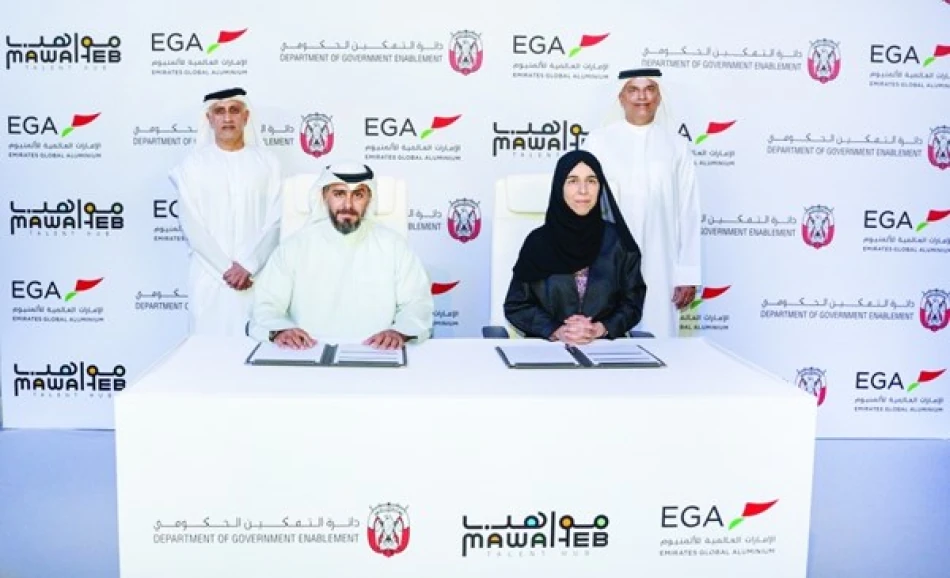
Emirati Aluminum and Government Empowerment Forge Partnership to Create 200 Jobs for Citizens
UAE's Aluminum Giant Launches Major Skills Academy to Train 200+ Citizens in Industrial Careers
Emirates Global Aluminium (EGA), the UAE's largest industrial company outside oil and gas, has signed a landmark agreement to train over 200 Emirati citizens through its newly launched academy program. This strategic workforce development initiative directly supports the UAE's ambitious "Project 300 Billion" strategy to diversify the economy and build a knowledge-based industrial sector capable of competing globally.
Strategic Partnership Addresses Critical Skills Gap
The agreement, signed between Ibrahim Nasser from the Government Enablement Department and EGA CEO Abdulnasser bin Kalban, establishes a five-year pipeline for training high school graduates in advanced aluminum production techniques. The partnership represents a significant commitment to localizing expertise in one of the UAE's most important non-oil industries.
Under the deal, Emirati citizens registered with the Government Enablement Department who hold secondary school certificates will be enrolled in comprehensive 12-month industrial training programs. The curriculum combines theoretical knowledge with hands-on experience at EGA's operational facilities, culminating in guaranteed employment upon successful completion.
Timing Aligns with UAE's Economic Diversification Push
The academy launch comes at a critical juncture for the UAE's industrial ambitions. The "Project 300 Billion" national strategy aims to increase the manufacturing sector's contribution to GDP while reducing dependence on oil revenues. By 2031, the UAE targets raising the industrial sector's GDP contribution to AED 300 billion, requiring a massive skilled workforce expansion.
Regional Context and Global Competition
This move mirrors similar initiatives across the Gulf region, where countries are racing to build domestic industrial capabilities. Saudi Arabia's NEOM project and Qatar's National Vision 2030 both emphasize manufacturing and technical skills development. However, the UAE's focus on aluminum—a sector where it already holds competitive advantages—suggests a more targeted approach than its neighbors' broader industrial strategies.
Market Implications for Aluminum Sector
For EGA, this workforce investment signals confidence in long-term aluminum demand despite recent market volatility. Global aluminum consumption is projected to grow 3-4% annually through 2030, driven by electric vehicle production, renewable energy infrastructure, and construction in emerging markets. By securing a steady pipeline of skilled local workers, EGA positions itself to capture this growth while reducing reliance on expatriate labor.
Competitive Positioning
The academy also addresses a strategic vulnerability. As global supply chains face increasing scrutiny over labor practices and environmental standards, companies with strong local workforce development programs gain competitive advantages in international markets. EGA's approach could serve as a model for other Gulf industrial companies seeking to enhance their ESG credentials.
Long-term Economic Impact
Beyond immediate job creation, this initiative represents a fundamental shift toward knowledge transfer and industrial capability building. By training 200+ citizens annually in advanced manufacturing techniques, the UAE is creating a domestic expertise base that could eventually support entirely new industrial clusters around aluminum processing and high-tech manufacturing.
The program's success will likely influence similar partnerships across the UAE's industrial sector, potentially accelerating the country's transition from a resource-based economy to a knowledge-driven manufacturing hub capable of competing with established industrial powers in Asia and Europe.
Most Viewed News

 Layla Al Mansoori
Layla Al Mansoori






